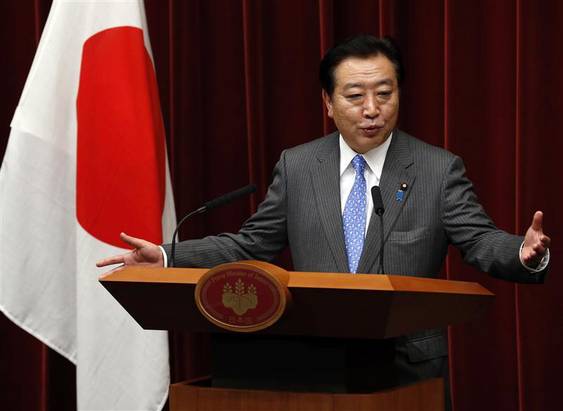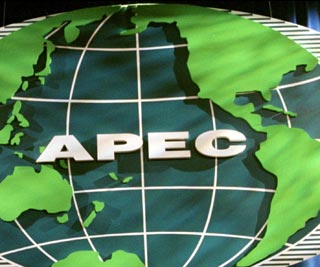The Battle over the National Sales Tax
On 4 June 2012, Japanese Prime Minister Noda Yoshihiko shuffled his cabinet for the second time in nine months, appointing new ministers for the Defence and Infrastructure and Transport positions. For the embattled Prime Minister, the cabinet shuffle was necessary to kick-start negotiations with the opposition Liberal Democratic Party (LDP) and the New Komeito Party (NKP) regarding Noda’s proposed national sales tax hike. This measure is being implemented in order to tackle Japan’s growing debt, and will raise the tax from the current 5% to 8% in April 2014 and to 10% in October 2015. On 11 June, the LDP and the DPJ reached an agreement, though what the deal entails is not yet clear.
While Noda’s ruling Democratic Party of Japan (DPJ) has a commanding majority in the House of Representatives, it faces one key obstacle in implementing its agenda: the DPJ is heavily split due to factionalism within the party. While Noda serves as prime minister and party leader, long-time political heavyweight Ozawa Ichrio, dubbed the ‘Shadow Shogun,’ maintains immense influence within the party. It is estimated that his faction numbers some 95 of the 289 DPJ members in the House of Representatives. Ozawa is strongly opposed to Noda’s tax hike and argues that instead of raising the consumption tax, the government should pursue administrative reform, including social security changes, and economic policies to tackle Japan’s persistent struggle with deflation. Facing possible dissent from his own party, Noda will be forced to make concessions to the LDP and the NKP in order to gain their support for the tax hike. A cabinet shuffle was the first step, but the LDP is intent on gaining concessions by forcing the DPJ to abandon its 2009 election campaign promises, including the DPJ’s desire to introduce minimum pension benefits for all Japanese. All this is made harder as the government’s approval rating has fallen to an all-time low of 27%.
Noda is therefore facing a dilemma. On the one hand, ensuring party unity means satisfying Ozawa and his faction and abandoning the policies on which he has built his credibility. This would very likely lead to Noda’s resignation, who is already Japan’s 6th prime minister in the last five years—further eroding the little confidence that the Japanese people have in their political leadership. On the other hand, Noda’s current strategy of reaching out to the opposition parties—many of whom despise Ozawa—to enact government policies runs the risk of alienating Ozawa and other DPJ members and thus splitting the party permanently. A breakdown of the DPJ into competing factions would probably lead to general election and more uncertainty.
[captionpix align=”left” theme=”elegant” width=”320″ imgsrc=” http://dwqovw6qi0vie.cloudfront.net/article-imgs/en/2012/05/30/AJ201205300078/AJ201205300079M.jpg” captiontext=”Prime Minister Noda Yoshihiko (left) and party heavyweight Ozawa Ichiro (right).”]
Political and Economic Pressures
What gives this current situation a sense of urgency are the adverse political and economic circumstances that have dogged Japanese society for so long. Politically, Japan has shown a dangerous inability to govern effectively. The last prime minister the Japanese could call a strong leader was Koizumi Junichiro (2001-2006). Not only was his five-year premiership almost unprecedented, but he was able to push through a difficult legislative agenda, in which the privatisation of Japan Post was achieved in October 2005. Since then, the premiership has been something of a revolving door. Each of the five prime ministers after Koizumi have served for about one year, each resigning in face of mass unpopularity, internal party divisions, or legislative deadlock. In response to one failed premiership after another, the Japanese people have undoubtedly lost all confidence in their politicians. Whether Noda will be another one-year prime minister, or break this vicious cycle, will depend on the success of his national sales tax, on which he has staked his ‘political life’. The time to curb this downwards slide is now.
Moreover, Japan’s economic difficulties have exacerbated the political situation. Ever since Japan’s economic bubble burst in 1990, the economy has never made a full recovery. Expansionary monetary policy has failed to stop deflation. Large stimulus measures undertaken since the 1990s have had little permanent impact. In fact, it has only led to structural problems. Forecasting that the Japanese debt to GDP ratio will reach 239% by the end of 2012, Fitch Ratings has reduced Japan’s sovereign debt rating from AA to A+ in May 2012, citing that the Japanese government was taking a ‘leisurely’ approach to debt reduction. To make things even harder, rebuilding the regions that the March 2011 earthquake damaged will cost some ¥19 trillion (US$238 billion) over the next decade. The national sales tax is only a first step in tackling Japan’s debt problems, with the need for public services reform in the future.
Furthermore, Japan will enter a serious debate over energy policy. In response to high demand for energy this summer and its necessity for economic activity, Noda has recently endorsed reopening the nuclear reactor at Oi in Fukui Prefecture. Those disillusioned with the safety precautions of nuclear reactors after the Fukushima disaster have objected to the move, an opinion to which many Japanese adhere.
[captionpix align=”left” theme=”elegant” width=”320″ imgsrc=” http://stwot.motortrend.com/files/2011/03/2011-japan-earthquake-damage-623×389.jpg” captiontext=” In addition to battling its two-decade long stagnation, Japan faces a key challenge in rebuilding parts of the country devastated by the March 2011 earthquake and tsunami.”]
Whither the Future?
Facing these hard realities, the choice is between strong political leadership, and continuing to dither under the curse of partisan and intra-party wars. Two processes are simultaneously occurring in Japan. One revolves around Noda, who is attempting to find solutions to the moral crisis that has developed in light of weak political leadership and woeful economic problems. The other revolves around Ozawa and the political manipulation that will bring him and his supporters to power. At the moment, it seems the troubles over the sales taxes signals that serious and urgent policy discussions will be sacrificed for factionalism and personal agendas. In order to propel Japan into the future, away from the stagnation of the present, strong political leadership is needed. One can come to no other conclusion than that Noda, and his plans for economic reform, face an uncertain future, and by default, so does Japan.




